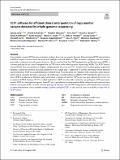| dc.contributor.author | Ding, Qiliang | |
| dc.contributor.author | Somerville, Cherith | |
| dc.contributor.author | Manshaei, Roozbeh | |
| dc.contributor.author | Trost, Brett | |
| dc.contributor.author | Reuter, Miriam S. | |
| dc.contributor.author | Kalbfleisch, Kelsey | |
| dc.contributor.author | Stanley, Kaitlin | |
| dc.contributor.author | Okello, John B. A. | |
| dc.contributor.author | Hosseini, S. M. | |
| dc.contributor.author | Liston, Eriskay | |
| dc.contributor.author | Curtis, Meredith | |
| dc.contributor.author | Zarrei, Mehdi | |
| dc.contributor.author | Higginbotham, Edward J. | |
| dc.contributor.author | Chan, Ada J. S. | |
| dc.contributor.author | Engchuan, Worrawat | |
| dc.contributor.author | Thiruvahindrapuram, Bhooma | |
| dc.contributor.author | Scherer, Stephen W. | |
| dc.contributor.author | Kim, Raymond H. | |
| dc.contributor.author | Jobling, Rebekah K. | |
| dc.date.accessioned | 2022-11-21T14:05:51Z | |
| dc.date.available | 2022-11-21T14:05:51Z | |
| dc.date.issued | 2022-11-14 | |
| dc.identifier.uri | https://hdl.handle.net/1721.1/146556 | |
| dc.description.abstract | Abstract
Copy number variants (CNVs) represent major etiologic factors in rare genetic diseases. Current clinical CNV interpretation workflows require extensive back-and-forth with multiple tools and databases. This increases complexity and time burden, potentially resulting in missed genetic diagnoses. We present the Suite for CNV Interpretation and Prioritization (SCIP), a software package for the clinical interpretation of CNVs detected by whole-genome sequencing (WGS). The SCIP Visualization Module near-instantaneously displays all information necessary for CNV interpretation (variant quality, population frequency, inheritance pattern, and clinical relevance) on a single page—supported by modules providing variant filtration and prioritization. SCIP was comprehensively evaluated using WGS data from 1027 families with congenital cardiac disease and/or autism spectrum disorder, containing 187 pathogenic or likely pathogenic (P/LP) CNVs identified in previous curations. SCIP was efficient in filtration and prioritization: a median of just two CNVs per case were selected for review, yet it captured all P/LP findings (92.5% of which ranked 1st). SCIP was also able to identify one pathogenic CNV previously missed. SCIP was benchmarked against AnnotSV and a spreadsheet-based manual workflow and performed superiorly than both. In conclusion, SCIP is a novel software package for efficient clinical CNV interpretation, substantially faster and more accurate than previous tools (available at
https://github.com/qd29/SCIP
, a video tutorial series is available at
https://bit.ly/SCIPVideos
). | en_US |
| dc.publisher | Springer Berlin Heidelberg | en_US |
| dc.relation.isversionof | https://doi.org/10.1007/s00439-022-02494-1 | en_US |
| dc.rights | Creative Commons Attribution | en_US |
| dc.rights.uri | https://creativecommons.org/licenses/by/4.0/ | en_US |
| dc.source | Springer Berlin Heidelberg | en_US |
| dc.title | SCIP: software for efficient clinical interpretation of copy number variants detected by whole-genome sequencing | en_US |
| dc.type | Article | en_US |
| dc.identifier.citation | Ding, Qiliang, Somerville, Cherith, Manshaei, Roozbeh, Trost, Brett, Reuter, Miriam S. et al. 2022. "SCIP: software for efficient clinical interpretation of copy number variants detected by whole-genome sequencing." | |
| dc.contributor.department | Sloan School of Management | |
| dc.identifier.mitlicense | PUBLISHER_CC | |
| dc.eprint.version | Final published version | en_US |
| dc.type.uri | http://purl.org/eprint/type/JournalArticle | en_US |
| eprint.status | http://purl.org/eprint/status/PeerReviewed | en_US |
| dc.date.updated | 2022-11-20T04:16:51Z | |
| dc.language.rfc3066 | en | |
| dc.rights.holder | The Author(s) | |
| dspace.embargo.terms | N | |
| dspace.date.submission | 2022-11-20T04:16:51Z | |
| mit.license | PUBLISHER_CC | |
| mit.metadata.status | Authority Work and Publication Information Needed | en_US |
